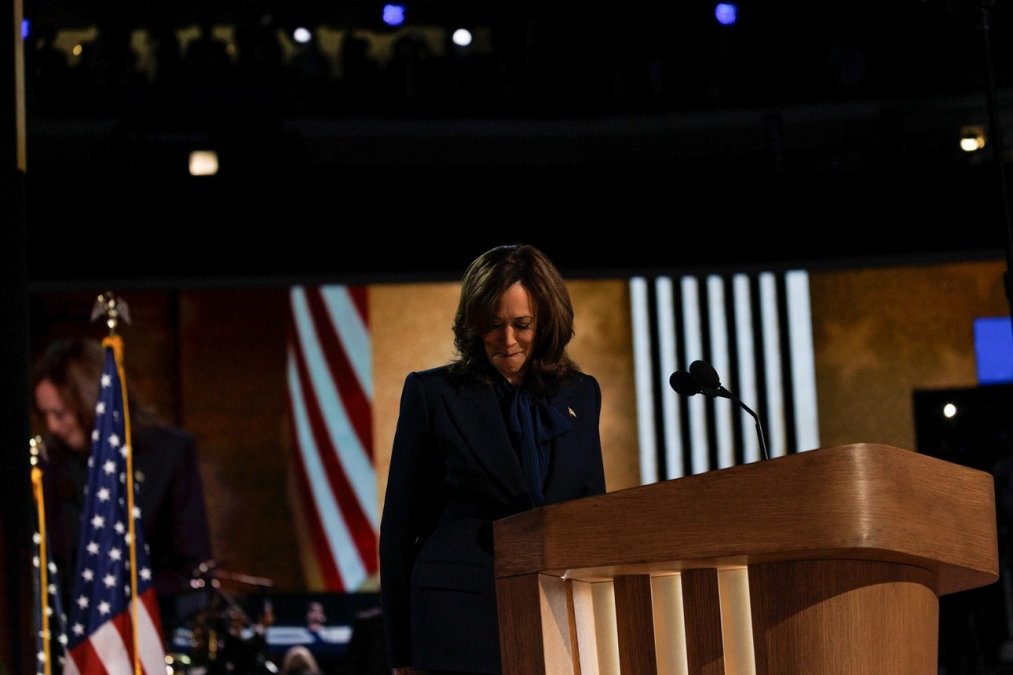Harris’s politicking might be familiar to us
In recent weeks, Kamala Harris has been under more pressure than in the initial weeks of her entry into the U.S. elections to clarify her positions on various issues more and more.
We have previously narrated that she deliberately avoids details in many areas, and her statements have supported the working-class middle class, labor unions, and Americans. Except for her precise entry into some economic and livelihood issues, which also became controversial, we haven’t heard much about the details of what she knows, believes, and wants to do.
She continued this approach cleverly in her interview with CNN and her selected vice president.
A specific topic where everyone might have been waiting for details was the Gaza crisis, where she explicitly rejected the ban on arms sales to Israel, and in this situation, it is the Biden and Harris administration that has imposed some restrictions.
Despite all these generalities, Arab and Muslim Americans have a much more positive view of her compared to Biden. Her grand and historic speech at the Democratic Convention in Chicago was the peak of this political game. Harris spoke intelligently about everything and nothing, keeping everyone somewhat satisfied, from tech activists to the middle class, workers, business owners, and companies.
What is the secret of this situation? Harris’s lack of attachment and indebtedness was, by itself, the main chance for succeeding Biden, and in just 48 hours, without begging or requesting others, and solely relying on the party’s iron will to defeat Trump, she was introduced as Biden’s replacement.
Even Nancy Pelosi and Obama, and the big names who played a role in Biden’s departure, cannot claim or demand from her, because Harris herself opposed the idea of removing her boss with all her might until the last moment. The entire party was mobilized to defeat Trump, and in this, no one has the power to hold her accountable.
The progressive wing of the party, with the fireworks of Sanders and Ocasio-Cortez, turned so quickly from staunch support for Biden to Harris that it became historic. Even if a few days were spent negotiating with Harris, a few of her economic promises were enough to reassure them.
That’s it, Biden’s supporters, Obama’s supporters, progressives, and even the staunch critics of Biden’s policy towards Israel support Harris. Harris is reminiscent of Obama’s 2008 campaign, a young senator who suddenly and without serious and obvious pressure from the party’s elders stood up against the main Democratic candidate, who was Hillary.
Harris even carries the same outsider and non-affiliated aspect to the ruling structure that Obama had. In polls, a significant part of the American public does not see her as involved in Biden’s policies.
But it is an undeniable reality that she must become as independent from Biden as possible, and the strange thing is that she has been given the space to show this independence in the remaining two months. Iranian politics also recently encountered the phenomenon of Dr. Masoud Pezeshkian, who suddenly arrived and, despite the main and foundational support of the reformist front, uniquely presented himself in all political formats and fronts and did not show.
One of the most important strategies to free oneself from being labeled was relying on upstream documents, and for the peace of the reformists, he used the necessity of defeating Jalili and Qalibaf and the urgency of the country’s situation.
The difference between Iranian and American politics is like night and day, but to compare this style of generality and detachment, at least two points must be emphasized.
Pezeshkian, after all, was a candidate approved by the Guardian Council and greatly benefited from the disqualification of other important candidates, and in fact, owes his presidency to that.
Another point is that the lack of acceptable and even relatively acceptable participation in the presidential election showed how serious the lack of a discourse in Iranian politicking, approved by the system, is in approaching the people.
This serious lack of participation occurred despite all of Pezeshkian’s efforts in debates to speak about the people’s demands.
The claim of insufficient time for campaigning is also not acceptable because the time span between qualification approval and election day in this period was similar to previous periods.
The politicking of the system’s acceptable figures has become devoid of identity, and with this lack of identity, their promises are not attractive. Their words not only do not satisfy everyone, they do not satisfy anyone and do not even attract attention.

